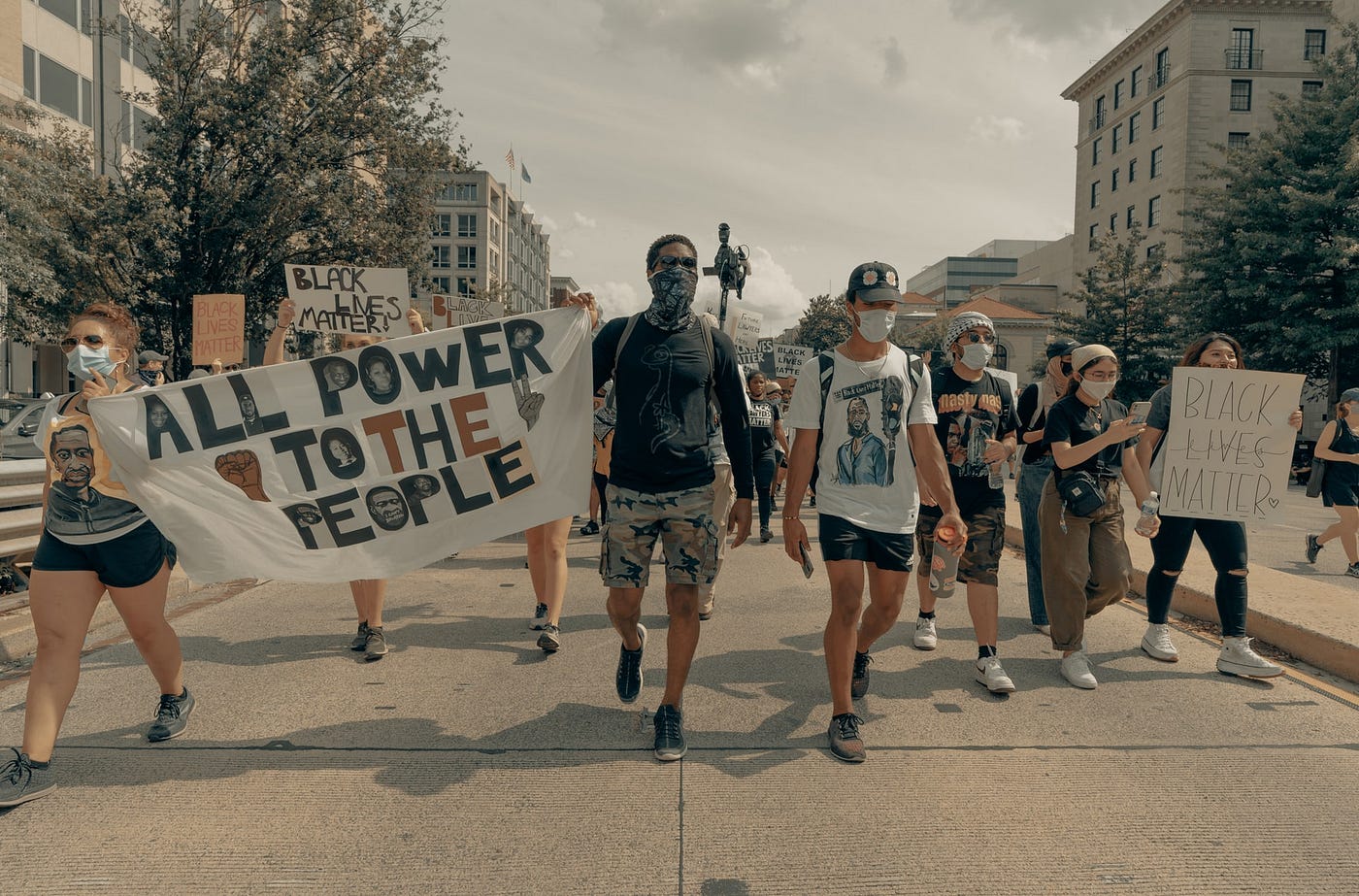

There is No “Justice” When the Focus is “Just Us”
source link: https://aninjusticemag.com/there-is-no-justice-when-the-focus-is-just-us-30827d18840d
Go to the source link to view the article. You can view the picture content, updated content and better typesetting reading experience. If the link is broken, please click the button below to view the snapshot at that time.
You have 2 free member-only stories left this month.
Jun 26
There is No “Justice” When the Focus is “Just Us”
Justice requires focusing on the well-being of all people

I am a professor of religion at Luther College, a small liberal arts college in Decorah, Iowa. One of the courses I teach is called “Clamoring for Change.”
In that course, we examine the power, politics, and meaning behind the rhetoric of “change,” as well as the role of Christianity in bringing about social “change.”
One of the books we read is Occupy Religion: Theology of the Multitude. The book presents a notion of justice by presenting an image of God as one who works from the bottom-up on behalf of many rather than from the top-down on behalf of a few.
A fundamental principle within this “bottom-up” theology is the idea of God taking sides (a view quite common in most forms of liberation theology).
Many people are often uncomfortable with the idea of God taking sides. They often assert that such an image contradicts the idea of an impartial and all-loving God who cares equally for all people.
A bottom-up theology of God asserts that God is a God who exists in relationship with all of creation at the same time every created thing is in relationship with every other created thing.
Regardless one’s beliefs about “God,” human relationships are governed by several principles. I believe one principle that should govern all human relationships is the principle of justice. I also believe the approach to justice should be a “bottom-up” approach rather than a “top-down” approach.
Concepts of justice
The term justice often means different things to different people. A common understanding of justice in the United States is the notion of “punitive” justice, which focuses on inflicting punishment for breaking laws.
The obsession with punitive justice in the United States is reflected by the fact that the United States has the highest incarceration rate of all industrialized nations. While comprising less than 5 percent of the world population, the United States has 25 percent of the world’s prison population.
While punitive justice might be one way of thinking about justice, it’s not the dominant or prevailing understanding of justice promoted within most religious traditions of the world.
The authors of Occupy Religion write:
God’s justice is about a struggle against injustice, which requires addressing the imbalance of power that leads to injustice rather than covering it up.
They go on to write,
In situations of grave imbalances of power, a well-meaning effort to mediate is not enough; taking sides with those who do not benefit from the imbalance of power is the only way to change and to make things right.
A common understanding of justice within many religious traditions focuses on correcting imbalances. Many of these imbalances result in various forms of social inequities.
Most of these social inequities can only be fixed by taking sides. To not take sides is, in fact, taking the side of those benefiting from the imbalance.
“Justice” versus “just us”
One example of an imbalance resulting in social inequity is the fact that the wealthiest top 1 percent of Americans possess about 16 times more wealth than the bottom 50 percent of all Americans.
This type of gross inequity is not the product of some people working harder than others. It is the product of exploitative relationships.
Our lives are constituted by relationships. The question is, “what is the nature of these relationships?” As debates regarding minimum wage reveal, and as the authors of Occupy Religion assert,
People are “less fortunate” not by accident but because others benefit from their misfortune, and they have little choice but to work for lower wages and fewer benefits.
Exploitative relationships are the result of focusing on “just us” rather than “justice.”
When, over 30 years, income grows by 275 percent for the wealthiest 1 percent of American households, only 37 percent for the middle 60 percent, and 18 percent for the poorest 20 percent, the wealthiest 1 percent represent the “just us” advantaged by this imbalance.
When the rate of drug use for black people and white people in the U.S. is relatively the same, but black people are arrested at rates significantly higher than whites, white people represent the “just us” advantaged by this imbalance.
When nearly 6 in 10 poor adults are women, and nearly 6 in 10 poor children live in families headed by women, men become a “just us” disproportionately advantaged.
When guns have now become the leading cause of death for American children and more children have been shot dead in 2022 than police killed in the line of duty (making it more dangerous to be a child than a police officer), it should be obvious that children are a “just us” disadvantaged by irresponsible gun laws, practices, and policies in America.
When imbalances result in certain groups (i.e., “just us”) being grossly advantaged or disadvantaged, then there is a lack of “justice.”
Justice is about removing the root causes of gross imbalances and fostering relationships that are mutually beneficial for all people not “just us.”
While justice requires a focus on serving all people rather than a select few, a focus on “just us” leads to injustice rather than justice.
May we as a nation commit ourselves to “taking sides” on behalf of those most adversely disadvantaged by an absence of “justice.”
May we learn to focus on “justice” rather than “just us.”
Recommend
About Joyk
Aggregate valuable and interesting links.
Joyk means Joy of geeK